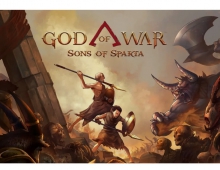
Sony, Warner license anti-piracy standard
"...Two major film studios have agreed to license a technology standard that protects copyrighted movies from being digitally copied en masse for illegal distribution. The agreement underscores the tug-of-war between the entertainment industry's embrace and fear of the digital living room. While new products such as digital video recorders and DVDs have sparked consumer demand, the digital transmission of movies raises fears of piracy and illegal dissemination of works.
In response, Sony Pictures Entertainment and AOL Time Warner's Warner Bros. movie studios Tuesday agreed to license the Digital Transmission Content Protection (DTCP) system. DTCP is a standard that prevents people from intercepting and re-broadcasting movies delivered digitally to home viewers. In the case of the DTCP, the standard would imbed an authentication and encryption system within devices to prevent works from being pirated. For example, a movie sent digitally though cable would be encrypted en route to a transfer onto a digital recording device. The system would prohibit some programs from being copied, such as a pay-per-view event. Other programs, such as paid cable programming, would be limited in the number of copies.
While the DTCP is a step toward protecting digital programs, there are still gaps in the overall picture. DTCP does not have a way to encrypt digital programs broadcast through airwaves for free. Meanwhile, many influential entertainment companies such as Disney and Viacom have not joined..." NULL
In response, Sony Pictures Entertainment and AOL Time Warner's Warner Bros. movie studios Tuesday agreed to license the Digital Transmission Content Protection (DTCP) system. DTCP is a standard that prevents people from intercepting and re-broadcasting movies delivered digitally to home viewers. In the case of the DTCP, the standard would imbed an authentication and encryption system within devices to prevent works from being pirated. For example, a movie sent digitally though cable would be encrypted en route to a transfer onto a digital recording device. The system would prohibit some programs from being copied, such as a pay-per-view event. Other programs, such as paid cable programming, would be limited in the number of copies.
While the DTCP is a step toward protecting digital programs, there are still gaps in the overall picture. DTCP does not have a way to encrypt digital programs broadcast through airwaves for free. Meanwhile, many influential entertainment companies such as Disney and Viacom have not joined..." NULL





















